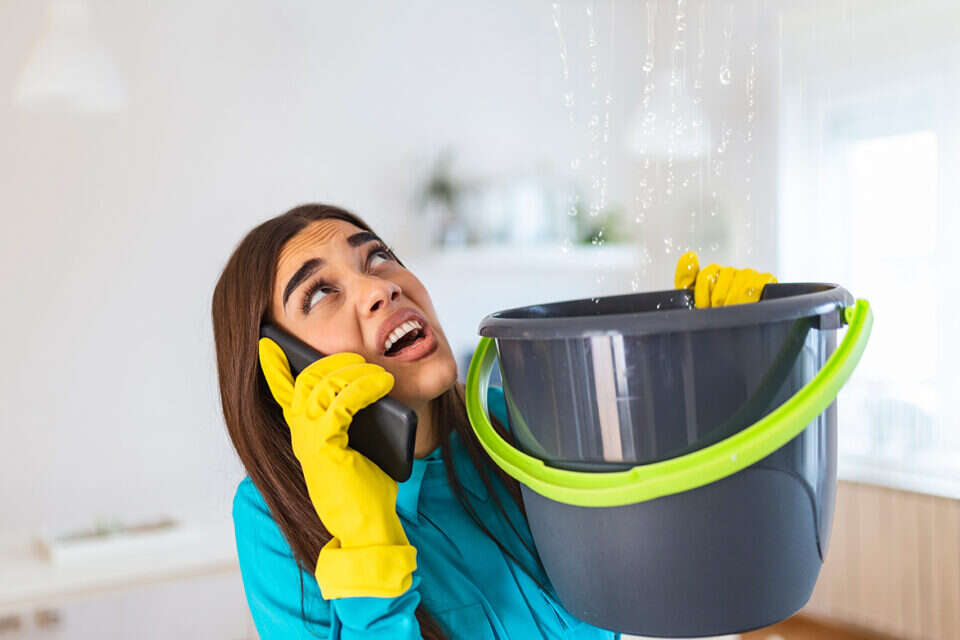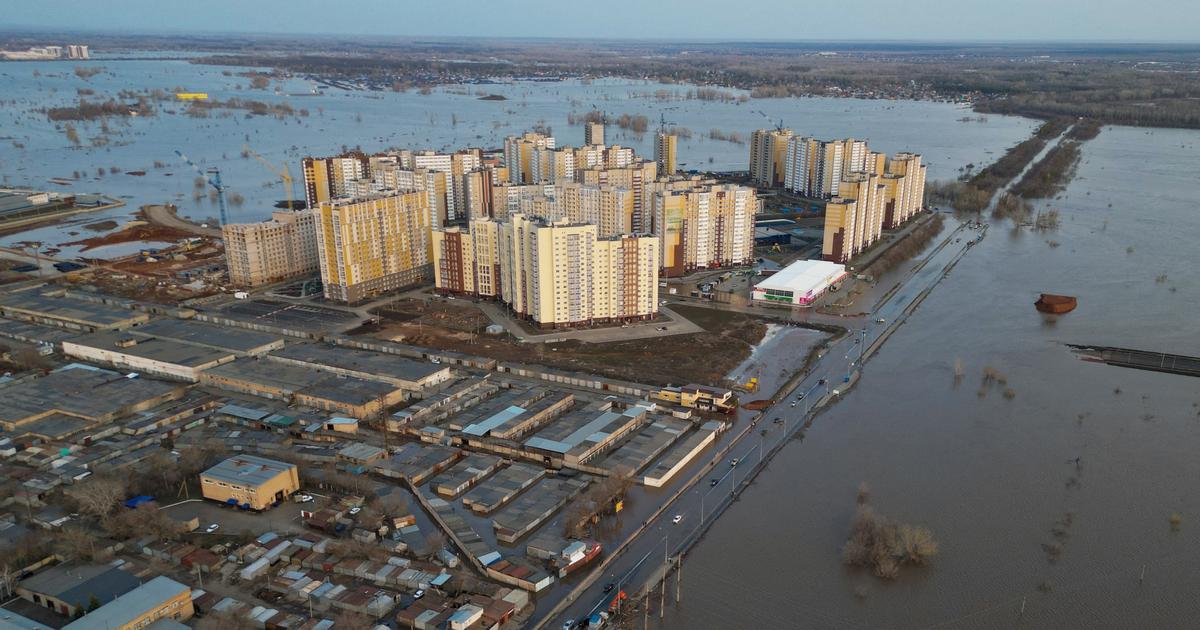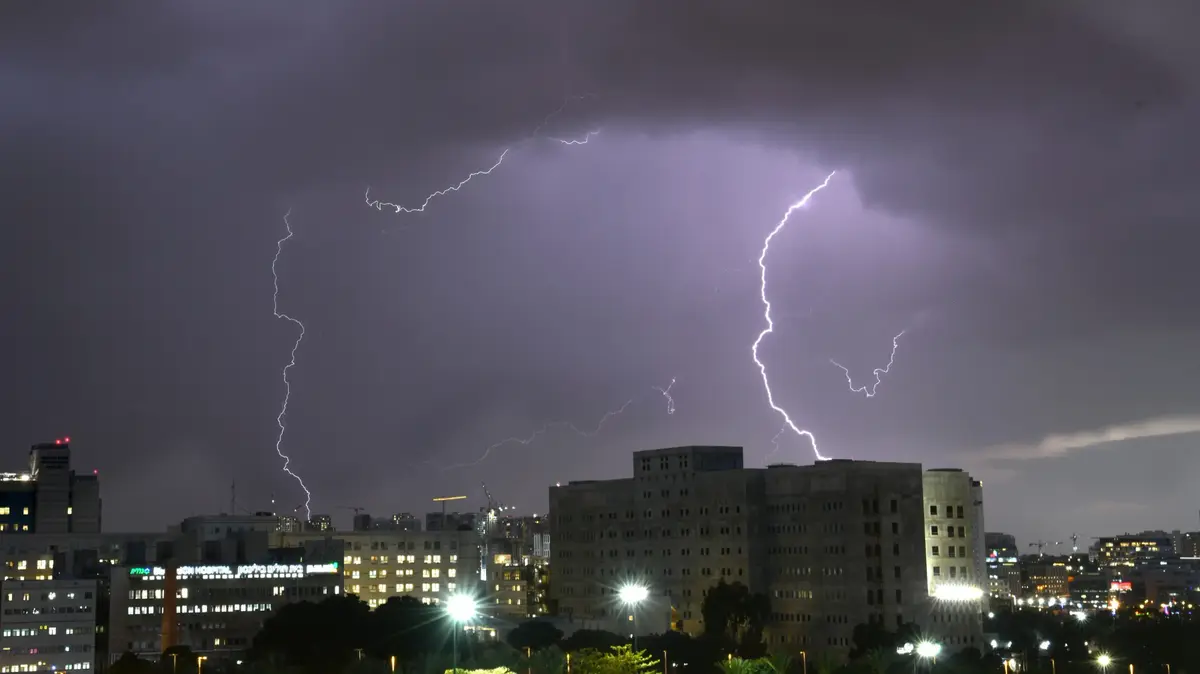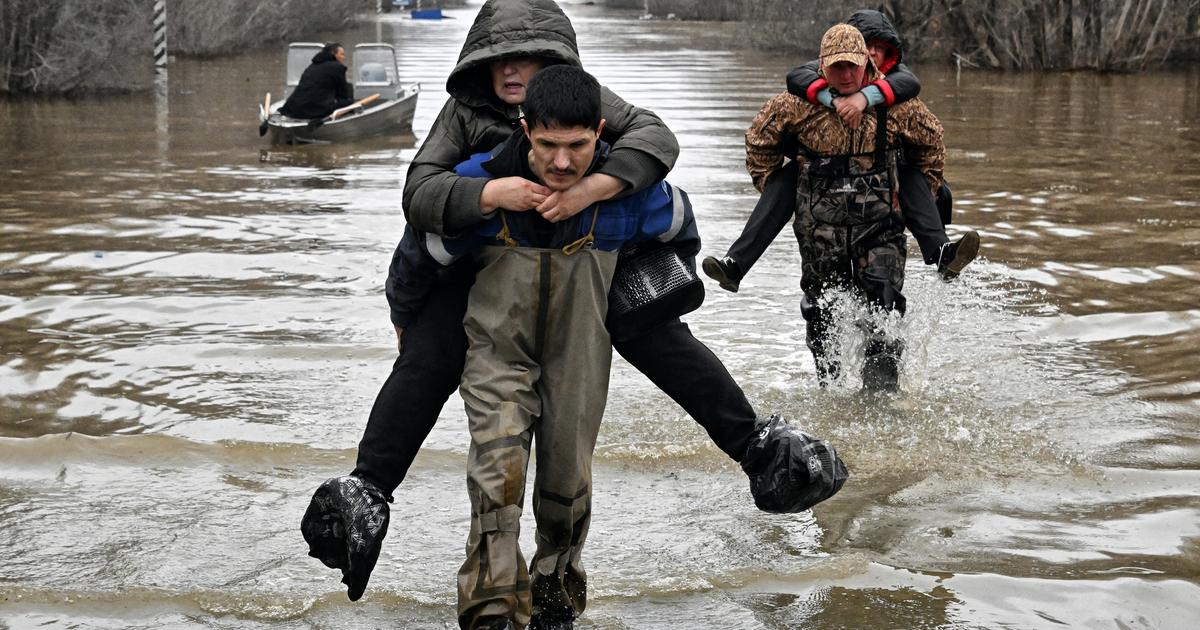Winter is coming, and with it great joy.
Or in other words - rain, winds, floods and other dangers that our house is prone to.
Although damage to the home can happen all year round - towards the winter the chance of failures increases, so we set out to examine how to best prepare for the cold season.
• Buy at a discount: The hottest November specials in home decor
"The winter in the State of Israel is extreme," explains Itzik Billett, CEO of Clean Core, a fire and water damage restoration company and Colonel in the Home Front Command.
"After a long period where the rains do not come - suddenly there is a severe winter, and as a result there are real effects of winds and rains at points in time, which if you have not prepared yourself for them - the result is heavy damage."
What preparations should you make at home before winter arrives?
"The gutters in the house need to be cleaned, and the drainage holes outside the house - because they accumulate a lot of leaves and dirt and clog them. Roofs are also damaged as a result of sunlight, and the roof must be sealed and anything that can cause flooding. Urban drainage slides on the road beyond its ability to absorb, as a result of blockages and lack of cleaning.
"Winds can blow and damage things - pergolas, parking lots, collectors and solar heaters, equipment in the gardens or on the balcony. "There are shorts on the board - because in winter everything is more sensitive to moisture - and we will seal the boards."
"Most people say 'it's not going to happen to me' and 'it's okay'."
Itzik Bilt, Photo: Tomer Bilt
Is there also a greater chance of winter fires, from heat dissipators, for example?
"Throughout the year there are fires caused by a variety of things, such as cell phone chargers, which must be disconnected from the electricity when you finish charging them, or non-fixed electrical products, such as a hair dryer - someone dried their hair at home and there was a power outage, she put the device aside without turning it off. And ran to work, and when the electricity came back the hair dryer kept running and the house burned down.
"Heat dissipators and radiators are common in winter, and leaving a blanket on a radiator is a sure recipe for a fire. The biggest problem is that most people say 'it's not going to happen to me' and 'it's fine.' "In the right way and no damage will be done. In the end, before leaving the house, we must be extremely careful that we did everything possible to prevent damage from fire or flooding, we turned off dangerous appliances, disconnected portable electrical appliances from electricity, turned off taps - everything we need."
The best coverage
And what about the corona period?
Did it cause minor damage, or vice versa?
Billet has answers.
"When people were at home, there was almost no damage," he says, "water damage, for example, could be detected and detected very quickly. When a person is in his house and the water tap explodes, you immediately notice a leak. flooded".
What about shelters - should they be prepared for the winter?
"Many shelters have equipment that is usually underground, so there is a high potential for water accumulation and flooding. It is advisable to check that there is no equipment that is not needed in the shelter and that there is no accumulation of molds, because this is a higher risk than in a normal room."
If damage has already occurred, action must be taken immediately and all factors that can be a source of danger taken care of.
Billet specifies that it is worthwhile to disconnect the electricity and gas and close the water barrier, no matter what the damage.
It is then advisable to call a damage restoration company, one that has suitable technological equipment and can perform underfloor drying using a vacuum method, that has devices for lowering humidity in the rooms, large fans that can dry walls within 24 hours and more.
What should not be done?
Wait for the water to dry on its own without doing anything.
According to him, there is no chance that the permeated sky will dry out on its own, and if you wait, spores and bacteria will form.
Billet makes it clear that they do not clean mold and hope that it will not return, but rather find out where it came from, and it can often be found that it is a quantity of water under the floor, or an increase in water through the walls.
"About 80% of calls come through insurance companies," Billett notes, "and the main thing here is the speed of response. If there is parquet soaked in water and we reached it within two hours and dried it - everything is fine. But after 24 hours it should be replaced, because it swelled. Water adsorption.The same goes for soot on aluminum following a fire - up to 24 hours after a fire it can be wiped off and is like new, but after that it already burns in aluminum, and after 96 hours everything must be replaced.
"Even cases of mold damage must be treated immediately. These are things that can cause respiratory diseases, and in asthmatic patients it can be long-term damaging. We need to bring in a professional, who will use different technologies and materials whose molecules destroy these molds. We get to places insurance companies send us to. We have been to many factories, residential buildings and apartments with heavy damage.
"One of these places was a school boarding school, which a few months earlier had burned down as a result of a telephone charge. Two rooms were completely burnt down, and 16 others were damaged by smoke. We rehabilitated the place within 48 hours so that 56 children could return to it. "It is very difficult for them, and they are also a psychological support point for them. Our mission, in the end, is to do good and help those who get into trouble."
Firefighters take care of course wood - which fortunately did not collapse on a house, Photo: Oren Ben Hakon
Caution, shingles!
And speaking of insurance companies, home insurance is one of the most difficult dilemmas for any person who has bought a home.
On the one hand - of course it is obligatory to insure the house in case of a disaster, but on the other hand - well, really.
What are the chances of a disaster happening to us?
Earthquake?
flood?
collapse?
Even after we have already decided to take out the insurance, it is still not clear to us which of the policies we will choose.
Secure the house with the contents?
Only the contents?
Just the house?
First of all, you should know a few things about home insurance.
There are different types of insurance coverage, but the policies do not cover sealing damage or rain penetration through the walls if sealing is not done ahead of time.
Which means that if you relied on the miracle and did not repair what was broken, and as a result you were harmed - you will probably not receive monetary compensation for it.
"The recommendation is to do the preventive measures in advance to prevent a situation where there will be no insurance coverage," explains Kobi Sarfati, chairman of the elementary committee at the Bureau of Insurance Agents. "There is no cover for that."
Natural damage includes floods, earthquakes, flares due to lightning and more - but if we had already mocked the possibility that the building would collapse, the house in Holon, which collapsed a few months ago, arrived and taught us that such things can certainly happen.
The worse news is that it is not certain that there is coverage for a building collapse that was not caused by an earthquake.
"There are legal disagreements on the subject," says a Frenchman.
"Some experts argue that the collapse is included in the insurance, and some are not. Insurance - It is not possible to rehabilitate the building, but those who have extended a policy called 'land value' will receive the actual value of the apartment from the insurance company. "24 months. Less than 40% of the occupants of the building that collapsed were insured, which is not normal. You can not trust that they will give us a solution if we do not take care of our property."
"More than 95% of claims are paid."
Kobe French, Photo: Liat Mendel
What about the contents of an apartment that is damaged, for example, by floods?
"If it is a standard policy, it has an extension of all the risks to the contents. There are policies that cover only the structure, there are those that cover only the contents and there are those that cover both."
If you had to give an estimate, how many homes in Israel have home insurance?
"When you take out a mortgage when buying an apartment, the bank requires insurance. This means that almost all the apartments that young people buy and have a mortgage on, also have insurance coverage on the building. The main problem is in old apartments, when people have no money No return - no money and no apartment, and unable to rehabilitate themselves. "
How much does home insurance cost?
"The average premium is around NIS 1,500 per year - including a building and a minimum capacity of up to NIS 200,000. If the construction cost increases and the value of the building is high, the insurance is also more expensive. It starts at NIS 8,000 per meter, and reaches NIS 120,000 per meter, but the city "It itself does not constitute a function regarding the cost of the premium. It can be the same, whether it is in Be'er Sheva or in North Tel Aviv."
If you asked yourself here as well if the corona period caused a change in the whole issue of insurance - the answer is yes.
"People were more available during the epidemic. They stayed home, started asking questions, checking, tidying up drawers and taking out apartment or car policies. On the one hand they put more emphasis on home insurance, but on the other hand they sat more at home and had fewer claims - because there were fewer Burglary, theft and damage to apartments. "
What is the most common damage in apartments?
"Pipe explosion damage, which is a blow to all the old houses, which often causes corrosion. In Corona it was also more difficult to send professionals to repair the damage."
How many of the home insurance claims are actually paid by the insurance company?
"In our estimation, more than 95% of the claims are paid. These are usually things like burglary, fire damage and plumbing, as we mentioned - but these are small claims. There are also flood claims in the winter, as happened in Nahariya and Tel Aviv, or last year was a stormy day. "He caused hail damage that perforated the shutters and broke glass walls, but all these claims are covered by the policy - and therefore paid."









